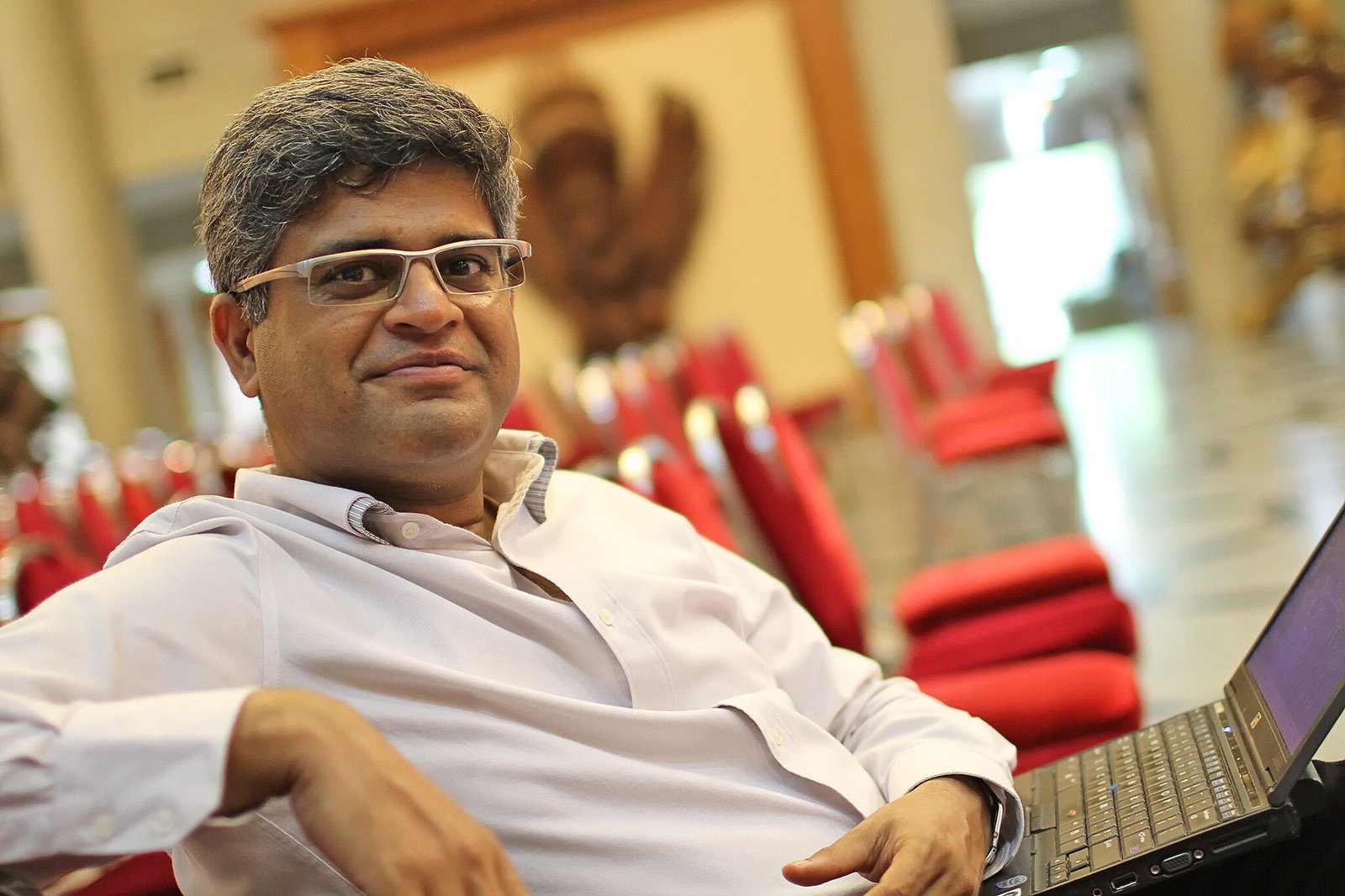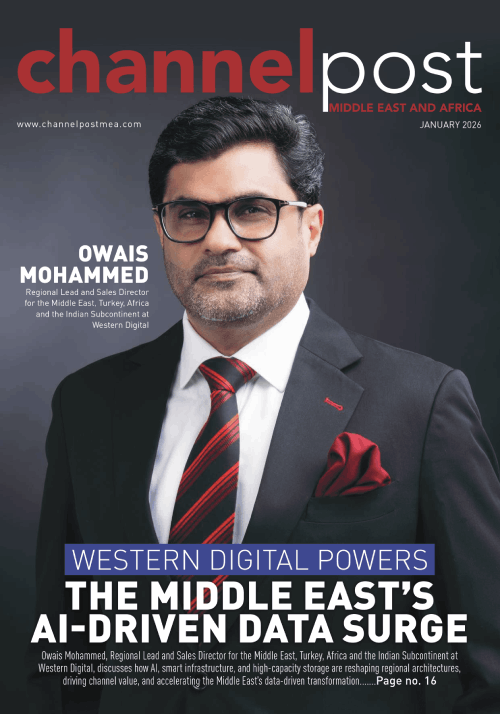Channel Post speaks to Sirish Kumar, the CEO and Co-Founder of Telr, about how 2017 was for his company and his plans and strategies for 2018.

What were the major technology and market trends in 2017?
The technology growth story has long focused on the consumer—and that story has continued through 2017. One of the most significant ways the sector has transformed is by adjusting their own business models to accommodate shifting customer demands – whether that’s the demands of the consumer, or for B2B technology companies, the demands of the businesses that serve the consumers.
This trend has redefined industry behaviours and has made things incrementally more convenient for consumers, who in turn are becoming increasingly comfortable with the active role that technology plays in their lives. The online payment industry has witnessed a growth in its ecosystems, with improvements in technology, user experience, and new payment channels that make transferring funds and accepting payments ever more preferable to cash.
Contactless payments have rapidly gained ground, driven by customer suitability, experience and effectiveness. This has continued to transform the space, and allowed merchants to increase their point-of-sale transactions through customers making cashless payments. With the launch of both Apple’s digital wallet and payment system, Apple Pay, and Samsung’s equivalent product in the UAE, it has been made easier for the users to use their smartphones in lieu of cash or a card anywhere that accepts contactless purchases.
The other ongoing development is that the UAE government is actively driving initiatives such as the use of blockchain technology to ease the lives of residents. This offers secured, safe and transparent process to residents, eliminating extra cost and time incurred by the government offices and the residents themselves – and acclimatising service providers and consumers to the use of technology.
With the introduction of Dubai’s Blockchain Strategy all these activities will be transacted digitally and by 2020, it is estimated that 100 per cent of Dubai government transactions will be based on blockchain technology.
Do you believe any technology buzzwords from 2017 will really kick-off in 2018?
Trends and innovations have been shaping the technology industry over the past few years, however it has come into sharper focus in 2017. Cloud computing has gone mainstream for many enterprises, and the Internet of Things (IoT) is changing how both industry and consumer-oriented companies do business.
Drones and autonomous vehicles, blockchain, augmented and virtual reality, increasingly sophisticated digital assistants, machine learning (artificial intelligence, or AI) are a few technological megatrends which are likely to move beyond headline-grabbing concepts into real-world applications through the next year. While the UAE’s sharing economy continues to gather pave, consumers see more of a merit in borrowing both goods and services rather than owning them, traditional businesses now find themselves in a unique position of having to find a way of countering the disruption being caused in various industries.
Anyone in the tech industry knows that making predictions about the course of technology’s future, even a year out, is an exercise in futility. Surprises can come from a number of different directions, and one trend that often gets overlooked is the change in corporate behaviour that this environment creates, with companies needing to rapidly pivot, adopt, seek out and embrace new technology, rather than rely on traditional channels.
How has 2017 been for your company and business?
2017 has been another year of exponential growth for Telr. This has been driven by a number of factors, over and above our own organic growth trajectory: the e-commerce ecosystem continues to expand at pace, helped by a slew of GCC retailers developing globally competitive e-commerce sites and by the end-consumer becoming increasingly comfortable with shopping online; by the UAE’s incumbent online companies expanding their presence beyond the country’s borders; and by our customers becoming increasingly inventive in how they offer payments options to their own customers – all of which have helped drive Telr’s multinational evolution from its starting point in the UAE.
What were your major achievements in the year 2017?
So much has happened over the past year that January 2017 seems almost like another world. With support from our investors, clients and our partners we have attracted talent from different parts of the world; we’ve focused on building Telr’s culture; and we’ve continued to invest millions of dollars into technology and partnerships in the region and beyond. We’ve consolidated our presence in India. We’ve expanded into Indonesia through a major telco provider in the country. We’ve more than doubled the size of the Telr team in Dubai.
Commercially it’s been extremely busy, as we’ve built up our customer base and deepened our relationships with our existing customers. We’ve partnered with government entities on their cashless initiatives, and have worked with brands across sectors as diverse as education and insurance on the digitisation of their cash collection. And as the sophistication of the e-commerce market has increased, so we’ve responded by releasing a new range of product features – such as dynamic quicklinks – and by integrating Telr with an ever-widening range of alternative payment channels.
Did you enter / expand your operations into new markets in 2017?
In 2017 we’ve built out our presence in the markets we entered in 2016, such as KSA, India, Egypt and Pakistan, and moved into the Indonesia market for the first time. We’ve been further expanding our footprint across a number of other geographies, which we’re looking forward to announcing soon.
How was the technology market in general in 2017? Was there any increase in business?
This year has seen much foundation building for an intelligent future, with hot topics such as artificial intelligence, machine learning, and IoT making their presence felt across every sector. Highly visible initiatives such as driverless cars, drone deliveries, government-led Smart Cities and some of the major investments into the UAE’s technology and e-commerce sector have shown how the region is increasingly at the forefront of global technology adoption.
And beneath these big-ticket items, smart technology is quietly making its mark at pretty much every touchpoint in a UAE resident’s life. The education sector is a great exemplar of this – a growing number of schools in the UAE are adopting e-learning platforms, which is helping enhance the quality of student education. An emerging trend seen in the field of education is the implementation of virtual classrooms. This is leapfrogging from what has been in the west – where traditional classrooms were the way to access education. Another noticeable trend is the ease of submitting homework virtually through e-learning platforms.
Students have a limited time frame to answer questions on these platforms and it is very well aligned with the millennial mind frame. And Telr has been working closely with a number of educational institutions to bring online payments into their ecosystem – not just with a view to digitise fee payment, but also because of the financial literacy opportunities that cashless payments offer to students for their on-campus activities. Overall, this is bringing more business to technology vendors, whose customers now span all sectors, industry, service-providers and retailers alike.
How do you foresee opportunities for 2018?
Dubai’s commitment to a smart future brings with it great opportunity. At a macro level, the emirate is rapidly becoming a hub for forward-thinking applications of blockchain, and is increasingly a destination for inward investment in the tech sector. And at a human level, the world-class infrastructure, youthful demographics and embrace of new technology means that the UAE’s e-commerce sector has years of high growth potential ahead of it. As a company with commitment to the region, and a firm place in the e-commerce ecosystem, the opportunities for 2018 are particularly exciting – the scale of what we stand to achieve goes hand in hand with the complexity and sophistication of the technology environment.
What sort of strategies do you have in place for 2018?
As we have always done, next year will see us investing in new technologies – in 2018, this will cover areas such as biometric forms of authentication for consumers and merchants, shorter settlement periods for our clients, more choice in payment channels for the customers of our clients, product innovations and partnerships to further develop the Telr ecosystem. Strategically, we seek to defragment the e-commerce ecosystem, joining the dots with our banking partners and regulators and making it ever more convenient for our merchants and their customers alike – and 2018 will be no different in this respect.
Will you be investing more in terms of expansion of your market reach, channel programs and general marketing?
We have been scaling up our operations globally through 2017, and this is set to continue during 2018. Partnerships are particularly a focus for us, as they allow us to provide our clients in specific sectors with customised solutions. Investment will focus on technological development in various areas such as biometric forms of authenticating transactions – defined throughout by the needs of our own clients.












